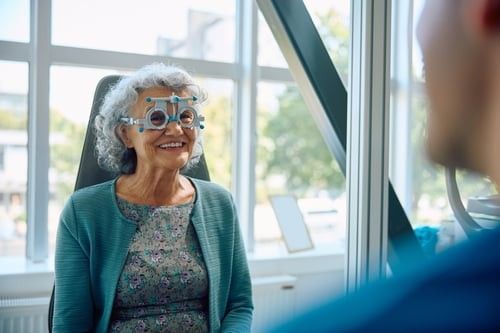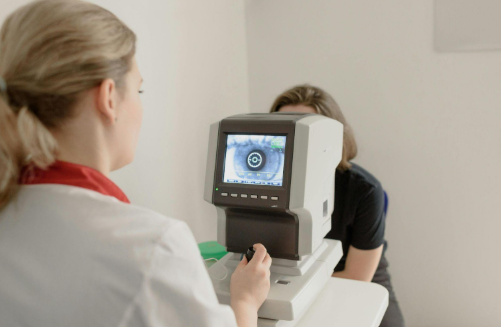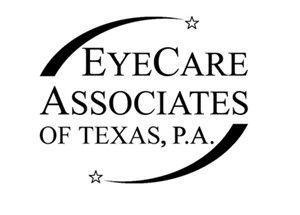By Bob Berendsen
•
January 12, 2026
Our eyes are among the most vital organs in the body, allowing us to experience the world in vivid color and detail. Yet, many people tend to overlook early signs of eye disease until their vision becomes noticeably impaired. Eye diseases can develop silently, and when symptoms do appear, the damage may already be significant or irreversible. Understanding the most common eye diseases and recognizing their warning signs can make the difference between preserving your sight and permanent vision loss. 1. Cataracts: Clouding the Clarity of Vision Cataracts are one of the most common eye conditions, especially in adults over 60. They occur when the normally clear lens of the eye becomes clouded, leading to blurry or dim vision. While aging is the most frequent cause, other factors—such as diabetes, prolonged UV exposure, smoking, and certain medications—can accelerate their formation. Warning Signs of Cataracts ● Cloudy or blurred vision that seems like looking through a foggy window ● Sensitivity to light and glare, especially at night ● Fading or yellowing of colors ● Frequent changes in eyeglass or contact lens prescriptions ● Difficulty seeing clearly at night Cataracts usually develop slowly, and in the early stages, new glasses or improved lighting may help. However, as the cataract progresses, surgical removal of the cloudy lens and replacement with an artificial lens is the most effective treatment. 2. Glaucoma: The Silent Thief of Sight Glaucoma is a group of eye conditions that damage the optic nerve—the vital connection between your eye and brain. This damage is often caused by abnormally high pressure inside the eye (intraocular pressure). What makes glaucoma especially dangerous is its silent progression; most people experience no pain or symptoms until vision loss occurs. Warning Signs of Glaucoma ● Gradual loss of peripheral (side) vision ● Tunnel vision in advanced stages ● Sudden severe eye pain, headache, or nausea (in acute angle-closure glaucoma) ● Blurred vision or seeing halos around lights Routine eye exams are crucial for early detection because glaucoma-related vision loss is irreversible. When caught early, prescription eye drops, oral medications, laser therapy, or surgery can effectively slow or stop its progression. 3. Age-Related Macular Degeneration (AMD): Blurring the Center of Sight Age-related macular degeneration is a leading cause of vision loss in adults over 50. It affects the macula, the small central portion of the retina responsible for sharp, detailed vision. AMD does not cause complete blindness, but it can severely affect central vision, making it difficult to read, drive, or recognize faces. Warning Signs of AMD ● Blurred or fuzzy central vision ● Straight lines appearing wavy or distorted ● A dark or empty area in the center of vision ● Difficulty distinguishing fine details There are two types of AMD: dry and wet. Dry AMD progresses slowly and is more common, while wet AMD develops quickly due to abnormal blood vessel growth beneath the retina. Although there is no cure, early detection can significantly slow progression with lifestyle changes, vitamin supplements, and specialized treatments like anti-VEGF injections for wet AMD. 4. Diabetic Retinopathy: The Hidden Threat of High Blood Sugar People with diabetes are at risk of developing diabetic retinopathy, a condition caused by damage to the small blood vessels in the retina due to high blood sugar levels. This disease progresses in stages and may not show symptoms early on, but it can eventually lead to blindness if left untreated. Warning Signs of Diabetic Retinopathy ● Blurred or fluctuating vision ● Dark or empty areas in your field of view ● Difficulty seeing at night ● Sudden loss of vision in one eye ● Spots or strings (floaters) in your vision Managing blood sugar, cholesterol, and blood pressure levels is key to preventing or delaying diabetic eye disease. Regular dilated eye exams are vital, as early detection and treatments like laser therapy or injections can preserve vision. 5. Dry Eye Syndrome: More Than Just Irritation Dry eye syndrome occurs when the eyes don’t produce enough tears or the tears evaporate too quickly. Though it may sound minor, chronic dryness can cause discomfort, inflammation, and even damage the corneal surface if untreated. Warning Signs of Dry Eye Syndrome ● Stinging, burning, or scratchy sensation in the eyes ● Feeling like something is in your eye ● Redness or excessive tearing (as a reflex response) ● Blurred vision or eye fatigue ● Discomfort while reading or using digital screens Factors such as aging, hormonal changes, medications, screen time, and environmental conditions can all contribute. Artificial tears, prescription medications, and lifestyle adjustments can provide relief and protect long-term eye health. 6. Retinal Detachment: A Medical Emergency Retinal detachment occurs when the retina—the light-sensitive layer of tissue at the back of the eye—pulls away from its normal position. This is a medical emergency that can cause permanent vision loss if not treated immediately. Warning Signs of Retinal Detachment ● Sudden appearance of flashes of light ● A surge in floaters (tiny dark spots or squiggly lines) ● A shadow or curtain effect over part of your visual field ● Blurred or distorted vision Anyone experiencing these symptoms should seek emergency care from an ophthalmologist right away. Prompt surgical intervention can often restore or save vision. 7. Conjunctivitis (Pink Eye): Not Always Harmless Conjunctivitis, commonly known as pink eye, is the inflammation or infection of the conjunctiva—the clear tissue that lines the inside of the eyelid and covers the white part of the eyeball. It can result from bacterial or viral infections, allergies, or irritants. Warning Signs of Conjunctivitis ● Redness or swelling of the whites of the eyes ● Itching, burning, or irritation ● Watery or thick discharge that crusts overnight ● Gritty feeling in the eyes ● Sensitivity to light While mild cases resolve on their own, bacterial infections may require antibiotic drops. Persistent or recurring conjunctivitis should always be evaluated by an eye doctor to rule out more serious causes. 8. Keratoconus: Thinning of the Cornea Keratoconus is a progressive condition where the cornea—the clear, dome-shaped front surface of the eye—thins and bulges outward into a cone shape. This distorts vision and can make it difficult to correct with glasses alone. Warning Signs of Keratoconus ● Sudden increase in nearsightedness or astigmatism ● Blurred or distorted vision ● Sensitivity to light and glare ● Frequent changes in prescription lenses Mild cases can be managed with custom contact lenses, while advanced cases may require corneal cross-linking or even corneal transplantation. Early detection is key to slowing its progression. Why Regular Eye Exams Are Crucial Most vision-threatening eye diseases develop silently and progress gradually. By the time noticeable symptoms appear, irreversible damage may have already occurred. Regular comprehensive eye exams allow your eye doctor to detect subtle changes early and intervene before vision loss becomes permanent. Adults should schedule a comprehensive eye exam every one to two years, especially those over 40 or with risk factors such as diabetes, high blood pressure, or a family history of eye diseases. Your eyes deserve expert care and attention at every stage of life. At Eyecare Associates of Texas, P.A. , our experienced team of ophthalmologists and optometrists provides advanced diagnostic and treatment services for a wide range of eye diseases, from cataracts and glaucoma to diabetic retinopathy and macular degeneration. We believe in proactive eye health through routine checkups, personalized treatment plans, and state-of-the-art technology. Don’t wait for symptoms to worsen— schedule your comprehensive eye exam today and take the first step toward lifelong vision wellness.





